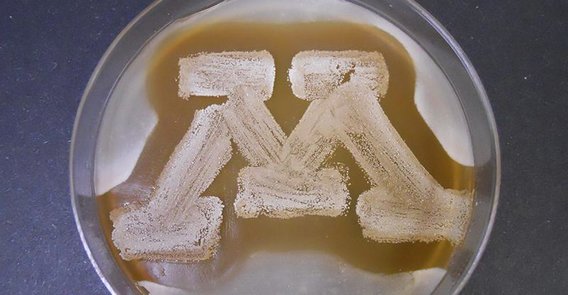Research Conducted by:
Linda Kinkel, Professor
Using Microbes to Create Healthier Plants
Minnesota’s native prairies are composed of a thriving community of perennial herbaceous plants, despite the presence of diverse plant pathogens. By trying to disentangle the reasons why these plants have been able evade significant disease in the prairie, are there important lessons that can be applied to agriculture to create healthier, more productive plants?
Plant Pathology professor Linda Kinkel and her research team are evaluating a genus of soil bacteria found in native prairie systems, Streptomyces, vital in the fight against plant pathogens. These bacteria, which are found naturally within the soil, are effective in suppressing plant pathogens since they produce antibiotic compounds when competing for food in highly competitive soils. These bacteria are key in the fight against pathogens since most plant pathogens are susceptible to at least one of the many compounds produced by Streptomyces. There are multiple different ways these diverse compounds inhibit pathogens, such as killing the pathogen, keeping it from growing, or preventing pathogen spores from germinating.

Kinkel and her team are investigating ways that growers can manage indigenous populations of microbes to increase their abilities to produce diverse compounds that can suppress plant pathogens and enhance plant growth.
“Everything that a grower does to the soil influences the microbial community. The scientific community does not yet have a refined understanding about how all these management practices can influence this community,” says Kinkel.
One goal of this project is to increase understanding of how the complex microbial community interacts to improve plant productivity so as to provide a robust foundation for understanding the impacts of agronomic practices on soil communities, and in doing so help harness the benefits of the indigenous microbial community to make agricultural crops more productive and to promote ecosystem health.
“We want to propose really specific and deliberate ways that growers can enhance the good guys. An outcome of that we hope will be reductions in the use of pesticides and fumigation, and the capacity to produce healthier crops with higher yields.”
